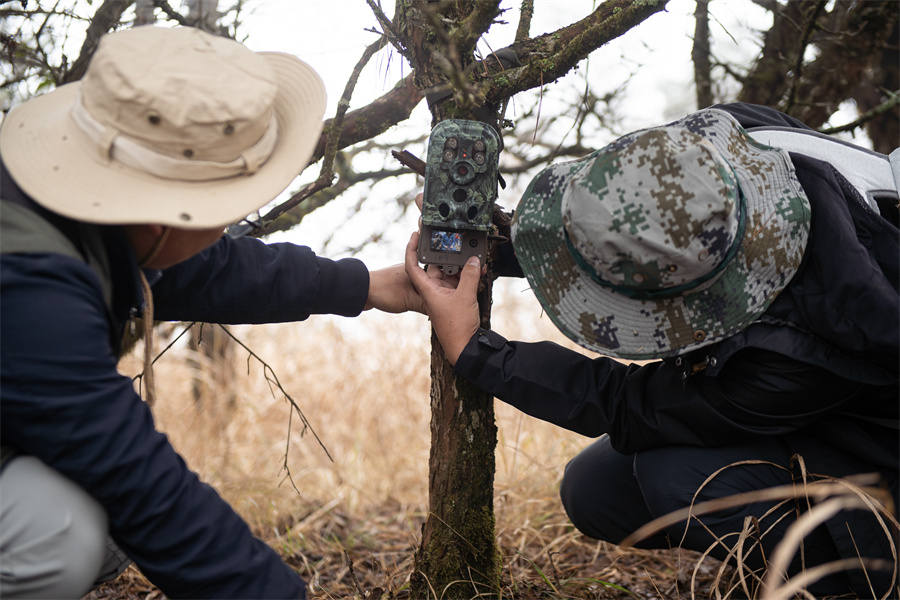National park innovations see humans, nature flourish together
Green industries in buffer zone help prevent 'isolated ecological island'


Sensitive development
Spanning 66.7 hectares, Yanzike ecological tea garden is located in park ravines, and is a core production area for Wuyi rock tea. The tea is renowned for its mineral-rich floral aroma derived from the unique soil and rocks of the region.
Yang Wenchun, one of three owners of the tea garden, said in the past cultivation had relied on pesticides and chemical fertilizers that had damaged the soil.
In 2018, the tea garden sought the help of Liao Hong, an agronomist at the Fujian Agriculture and Forestry University, to improve its cultivation methods and reduce the negative impact on the environment.
Liao, a sci-tech expert, has helped spearhead technological innovation in rural areas since 2015.
Yang said Liao suggested Yanzike use organic fertilizers and crop rotation methods to regulate and increase the organic matter in the soil. Natural pest control methods were also recommended to get rid of the company's reliance on pesticides and chemical fertilizers.
Yanzike quickly adopted Liao's suggestions and has seen positive environmental and economic results.
After the tea harvest, usually in May, Yang now plants soybeans amid the rows of tea trees, which helps replenish nitrogen levels in the soil. In winter, he plants rapeseed, which has a root system that activates phosphorus and potassium in the soil.
In addition, the ecological tea garden attracts birds and insects from the surrounding forest for natural pest control. Thirty solar-powered insect traps have been installed to ensure a double-edged approach to controlling pests.
These methods have helped improve the quality of tea, and led to better financial returns, Yang said. The tea garden can produce 75 metric tonnes of tea annually, and has increased the incomes of 56 farming households, he said.
The establishment and development of the Yanzike ecological tea garden is a prime example of how green technology is empowering the Wuyishan tea industry.
In recent years, the city has focused on the integration of tea culture, industry, and technology, while adhering to the path of green development, to create a sustainable development model tailored to local conditions.
In 2023, the total output value of the tea industry chain in Wuyishan county reached 13.5 billion yuan ($1.9 billion), with nearly half of farmers' per capita income coming from the industry, according to local statistics.























